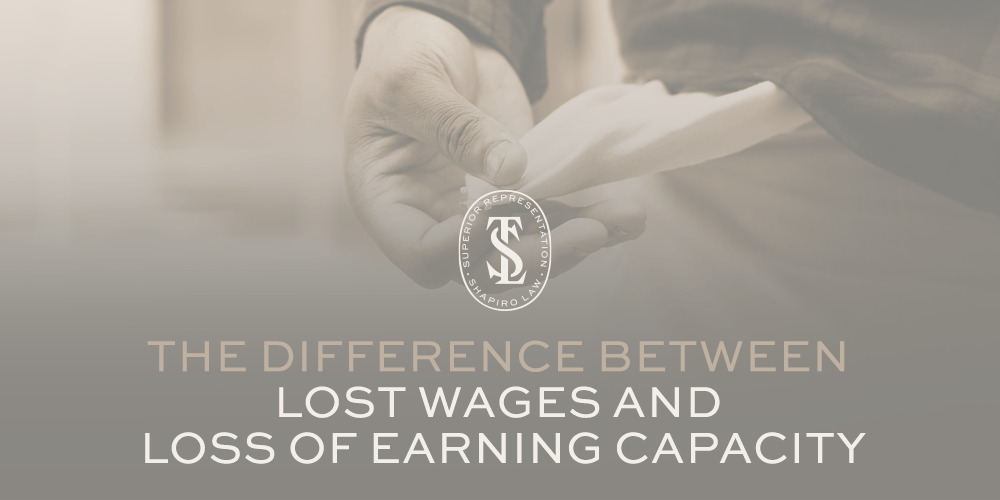When you or someone you love sustains an injury caused by the careless actions of another party, business, or entity, the liable individual should be financially responsible for the victim’s losses. When filing a personal injury claim, you have a right to recover compensation for the money you can no longer earn. This is especially true if the injured can’t work while recovering or has a long-term disability.
Though used interchangeably, loss of income and loss of earning capacity are separate issues. Below, we’ll discuss the difference between the two and highlight the evidence needed to prove loss of earning capacity and loss of income.
Loss of income, also called lost wages, refers to the monetary amount of work you missed when recovering from an accident. Lost wages belong in the special class of damages. This is important when calculating damages.
A lawyer will total your streams of income and determine how much earning potential you had before sustaining injuries.
Keep in mind: Damages for lost wages can include past, present, and future loss of income.
Loss of earning capacity is classified as general damage. This category of personal injury damage is strictly for victims with severe, life-changing injuries and disabilities:
General damage is subjective, whereas special damage has clear monetary value.
In a lawsuit, a judge or jury will determine what is fair for the damages suffered.

Loss of income and lost earning capacity are legal damages from a personal injury lawsuit, but there are key differences. Namely, loss of income refers to past income. Lost earning capacity refers to future, unearned income.
Other differences refer to the victim’s ability to return to life in the same capacity as before the accident. For help determining which category of damages your injury claim is in, contact an experienced personal injury attorney.
Proving loss of income requires showing what was lost between the time of the accident and the time of the lawsuit.
When considering what damages to pursue in a personal injury claim, it is best to consult with a litigator at Shapiro Law Team. Our attorneys will evaluate your accident claim, serve as your counsel, and seek awards for lost wages.
Not necessarily. If the victim has extensive injuries that haven’t healed, the representing attorney may advocate for loss of earning capacity before going to trial or settling. This happens with severe, non-permanent aliments (brain and nerve damage) that heal slowly.
For personal injury lawsuits in Arizona, victims (or their families) have two years to file a claim for lost earnings.
Keep in mind, that limitations vary by state and case type. Check with your local attorney to resolve your case and secure compensation before the statute of limitations expires.
Hiring an attorney at Shapiro Law Team is the most effective way to pursue and retain financial compensation for lost wages and/or lost earning capacity. Although you may be tempted to accept the first settlement the opposing insurance company offers, a lawyer will ensure you receive an amount that aligns with your injuries.
Shapiro Law Team specializes in personal injury claims. Secure compensation for a substantial injury with the Shapiro Law Team. Request your free legal consultation today.